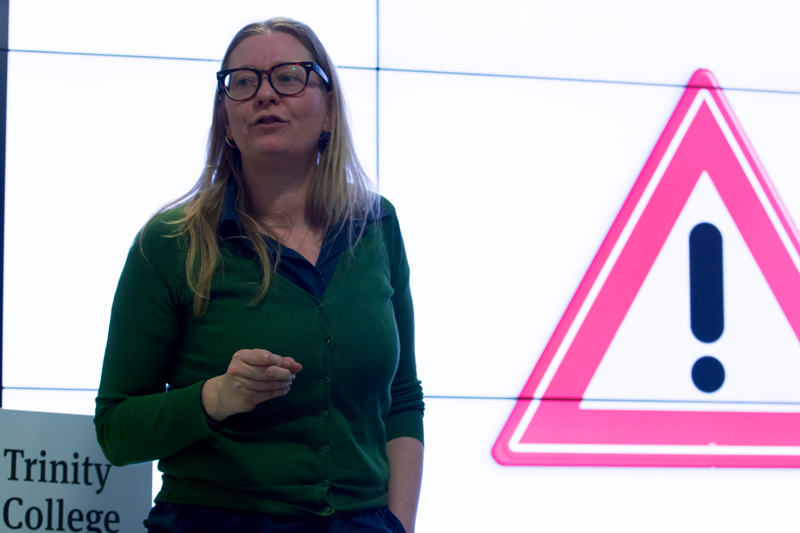As part of Green Week, DU Psychological Society (PsychSoc) welcomed Dr Geertje Schuitema, an environmental psychologist, for a talk on tempting people to be more sustainable. Schuitema has received MSc and PhD degrees in social psychology in the University of Groningen, where she specialised in environmental psychology. Schuitema is currently a lecturer in consumer behaviour and technology adoption at UCD.
Climate change has often been described as a problem for economists or natural scientists, but it is, in reality, a collective human problem. Understanding and predicting behavioural psychology is therefore integral to the fight against climate change.
Schuitema’s presentation suggested ways in which sustainable behaviour might be encouraged. Schuitema spoke at length about environmental psychology, an area specifically concerned with human interaction and involvement with the environment. Studies in this area, for instance, have revealed that nature has a positive effect on people’s mental health. Schuitema spoke of a study in which a group of patients – all recovering from the same operation – recovered significantly faster if their rooms had windows to greenery.
Schuitema also spoke of a study in which people at a petrol station were presented with different advertisements persuading them to check their tyre pressure. One advertisement offered a discount, while another stipulated that it would help the environment, and another cited safety reasons, and the final one simply encouraged them to just check it. Many in the audience automatically assumed that the incentive of a discount would increase tyre checks but, actually, the environmental advertisement encouraged the most checks. “Having an economic argument makes no sense”, Schuitema said. The financial motivations may seem convincing, but not if the gains are so small that they are more of an inconvenience. People prefer the self-satisfaction of being “green” than saving a few euro.
Schuitema also pointed out that during from the 1960s through to the 1980s, being environmentally friendly was considered a “hippie” phenomenon. However, nowadays: “It’s a status, a way of showing identity … of being in an affluent part of society”.
The role of awareness is also extremely important in promoting “green” behaviour. Schuitema spoke of her shock over the public’s reaction to the water charges. Schuitema said: “If people really see the benefits, acceptance [to government policies] may change.”
It’s the lack of trust in what the government would use the water charges for that caused the huge public reaction, not the prospect of improving the water works and helping the environment by preventing waste. “You can’t force people” to change, you can only guide or “nudge” them down the right path, Schuitema said.
Radical and fast change will not leave long-term impacts on the planet. As a society, we react too harshly to things we do not understand. However, awareness in recent years has slowly started to grow and blossom. Schuitema was certainly optimistic for our contribution to the environment in the next few years, so long as we pay due attention to exactly why we need “to effectively change behaviour”. Only then, she affirmed, can we truly make a difference in the world.







